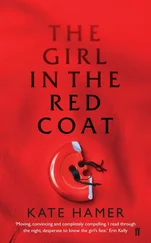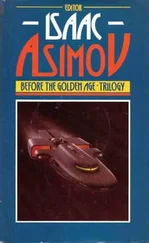Sam Eastland - The Beast in the Red Forest
Здесь есть возможность читать онлайн «Sam Eastland - The Beast in the Red Forest» весь текст электронной книги совершенно бесплатно (целиком полную версию без сокращений). В некоторых случаях можно слушать аудио, скачать через торрент в формате fb2 и присутствует краткое содержание. Год выпуска: 2013, ISBN: 2013, Издательство: Faber & Faber, Жанр: Исторический детектив, на английском языке. Описание произведения, (предисловие) а так же отзывы посетителей доступны на портале библиотеки ЛибКат.
- Название:The Beast in the Red Forest
- Автор:
- Издательство:Faber & Faber
- Жанр:
- Год:2013
- ISBN:9780571281466
- Рейтинг книги:4 / 5. Голосов: 1
-
Избранное:Добавить в избранное
- Отзывы:
-
Ваша оценка:
- 80
- 1
- 2
- 3
- 4
- 5
The Beast in the Red Forest: краткое содержание, описание и аннотация
Предлагаем к чтению аннотацию, описание, краткое содержание или предисловие (зависит от того, что написал сам автор книги «The Beast in the Red Forest»). Если вы не нашли необходимую информацию о книге — напишите в комментариях, мы постараемся отыскать её.
The Beast in the Red Forest — читать онлайн бесплатно полную книгу (весь текст) целиком
Ниже представлен текст книги, разбитый по страницам. Система сохранения места последней прочитанной страницы, позволяет с удобством читать онлайн бесплатно книгу «The Beast in the Red Forest», без необходимости каждый раз заново искать на чём Вы остановились. Поставьте закладку, и сможете в любой момент перейти на страницу, на которой закончили чтение.
Интервал:
Закладка:
*
‘And what is the finest place in this town?’ asked Kirov, as he followed Pekkala through the bombed-out streets. ‘From what I’ve seen, that isn’t saying much.’
‘I am taking you to a safe house which was used during the occupation,’ answered Pekkala.
‘But I thought the Barabanschikovs lived in the forest.’
‘They did, and they still do, but Barabanschikov made sure that he still had access to Rovno. It was important to keep an eye on those who came and went from the headquarters of the Secret Field Police. Several of the merchants in this town — tailors, cobblers, watchmakers — were actually members of the Barabanschikovs, and the Field Police officers became their best customers. Some of them liked to talk while their watches were being repaired or the hems taken up on their trousers and any piece of information they let slip would find its way to Barabanschikov. Many important meetings were held here between the various partisan leaders, right under the noses of the police, which was the last place they ever thought to look. Barabanschikov himself chose this house, and when we get there, you’ll see why.’
By now, the sleet had turned to hail, stinging their faces and rattling like grains of uncooked rice upon the frozen ground.
The cold leached its way through Kirov’s tunic and up through the soles of his boots. He hoped the house was comfortable, with soft beds and blankets and a fire. Perhaps there might even be food, he thought. Fresh bread might not be too much to ask.
Pekkala ducked into a narrow alleyway, which was flanked on either side by tumbledown wooden fences, some of them held up only by the weeds and brambles which had grown between the slats.
By following this maze of paths, Pekkala was able to stay clear of the streets, where people gathered around oil-drum fires and dogs fought in the dirty snow for scraps of rotten meat.
Opening an iron gate, Pekkala stepped into an overgrown garden and beckoned for Kirov to follow.
Through tall, dishevelled grass, each strand bowed with its minute coating of ice, the two men crept towards the house.
The back door had been boarded up and the shutters on the windows fastened closed with planks of wood
‘How do we get inside?’ asked Kirov.
At that moment, Pekkala seemed to vanish, as if the earth had swallowed him completely.
Rushing forward, Kirov found himself at the edge of a deep but narrow trench which had been dug against the outer wall of the house.
‘Come on,’ Pekkala called out of the darkness of the trench, ‘unless you want to stay out there all night.’
Before he jumped, Kirov turned and looked back in the direction from which they had come. He could make out little more than the silhouettes of houses and the tumbledown fences which separated their gardens. Wind slithered through the grass, whose brittle strands crackled like electricity. Just then, Kirov caught sight of a dog, loping along the alleyway. As the animal drew close, Kirov realised that it was, in fact, a wolf. It stopped at the end of the garden, then turned and looked at him, its mean, thin face spliced by the iron railings of the gate. They watched each other, man and beast, breath rising like smoke from their nostrils. There was something about its stare which snatched the last faint trace of warmth from Kirov’s blood and he felt colder than he’d ever been before, as if a layer of frost had formed around his heart. The wolf moved on and Kirov scrambled to catch up with Pekkala.
Report on Arrest of William Vasko
Pekkala, Special Operations
Dated December 10th, 1937
REPORT CENSORED
In accordance with the instructions of Comrade Stalin, I have conducted an interview with William Vasko at Lubyanka, where he has been held in solitary confinement since his arrest and transfer from the Ford Motor Car plant in Nizhni-Novgorod. The circumstances of his arrest involved allegations that he was attempting to flee the country illegally, along with his wife and children. Although I have found no documentary evidence of this, Vasko readily admitted that he had planned to return his wife and children to the United States, which is their country of citizenship. However, Vasko denied that he himself intended to flee and further questioned whether such a departure would have been illegal, even if he had chosen to do so. Vasko initially refused to divulge the reasons why he was choosing to send his family away. However, when I travelled to Nizhni-Novgorod and began interviewing some of his fellow American workers, it soon became apparent that they believed Vasko to be behind the arrests of numerous other workers at the plant. In fact, by the time I arrived, over half the workforce had been taken into custody on charges ranging from sabotage to subversion to threats made against the leadership of the Soviet Union. His former comrades at the factory firmly believed that Vasko’s reports to Soviet security services had caused a large number of them to be arrested. These workers readily admitted that they had threatened Vasko with bodily harm if he did not immediately resign from the plant’s workforce.
On my return to Moscow, I interviewed Vasko for a second time. When confronted with these accusations, Vasko admitted that he had denounced a number of them to the authorities. However, he went on to explain that [the following section of the report is blacked out] xxxxxxxxxxxxxxxxxxxxxxxxxxxxxxxxxxxxxxxxxxxxxxxx. Vasko’s journey to the Soviet Union was xxxxxxxxxxxxxxxxxxxxxxxxxxxxx. Vasko asserted that his wife and children were not aware of xxxxxxxxxxxxxxxxxxxxx. When he realised that his workmates had stumbled upon the truth, or part of it, at least, fearing that his life was in danger, he did indeed attempt to resign from the plant. His request was denied, however, and he was forced to continue his work. Over the next few weeks, Vasko’s situation at the plant continued to deteriorate. He received threats on an almost daily basis and he was otherwise shunned by his colleagues. He began to believe that his family were also in danger. After one final appeal to quit the plant was denied, he took the first steps towards repatriating his wife and children to America. This, he believes, is what led to his arrest. He expressed concern that his wife might be forced to leave the housing provided for her at the plant and that she had no means of income. He had not heard from her, nor had he been allowed to make contact since his arrest, and he no longer knew whether she was still receiving his salary. He implored me to look into the matter personally and also to make his situation known to xxxxxxxxxxxx of xxxxxxxxxxxxxxx, who, he believed, could secure his immediate release.
My subsequent enquiry to the Ford Motor Car plant revealed that Mrs Vasko left her housing in Novgorod and that she is currently staying at a homeless shelter in Moscow.
My enquiry to xxxxxxxxxxxxxxx of xxxxxxxxxxxxxx has not yet received a response.
My recommendation is for Vasko’s immediate release and for the swift location of his family, with whom he should be united. Given the innocence of his wife and children, I recommend that their return to the United States be granted if that is the family’s wish. As for Vasko I recommend that xxxxxxxxxxxxxxxxxxxxxxxxxxxxx.
Signed — Pekkala, Special Operations.
HANDWRITTEN NOTE IN MARGIN: Complete report suppressed. Authorise immediate transfer of document to Archive 17. Signed — JS.
Having reached the safe house, Pekkala stopped next to an opening in the wall which had been camouflaged with the tattered remains of a German army blanket. He pushed aside the frozen wool and ducked inside, followed by Kirov a moment later.
They found themselves in what had once been a root cellar. The air was still and damp.
Читать дальшеИнтервал:
Закладка:
Похожие книги на «The Beast in the Red Forest»
Представляем Вашему вниманию похожие книги на «The Beast in the Red Forest» списком для выбора. Мы отобрали схожую по названию и смыслу литературу в надежде предоставить читателям больше вариантов отыскать новые, интересные, ещё непрочитанные произведения.
Обсуждение, отзывы о книге «The Beast in the Red Forest» и просто собственные мнения читателей. Оставьте ваши комментарии, напишите, что Вы думаете о произведении, его смысле или главных героях. Укажите что конкретно понравилось, а что нет, и почему Вы так считаете.











